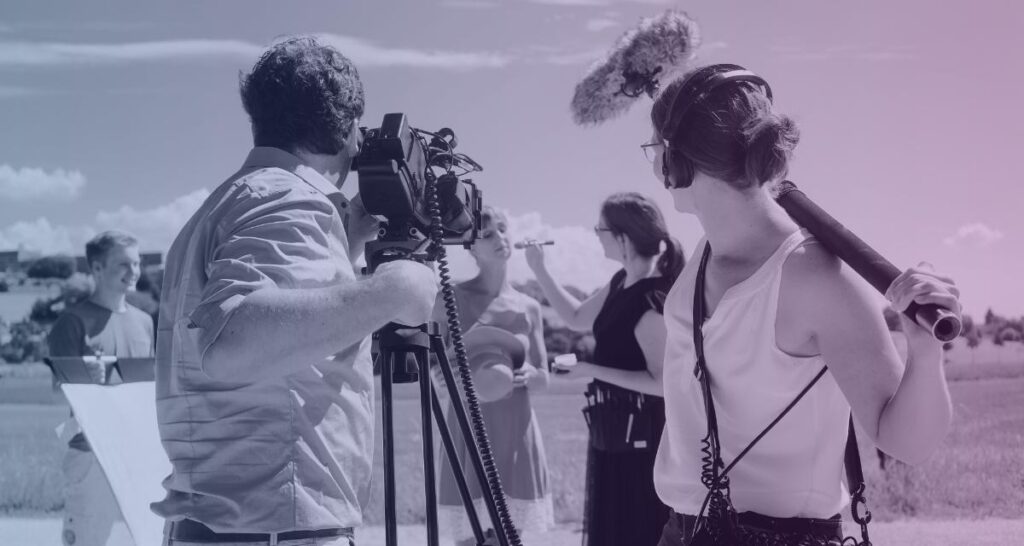
There’s an old idiom in filmmaking: “The location is a character.” Imagine Lost in Translation without Tokyo as a backdrop, Jurassic Park without its Hawaiian vistas, or Midnight in Paris without… well, Paris. Filming on location can add texture and personality to a project that no soundstage could replicate.
Film location permits are essential for indie filmmakers, providing authorization and serving as a critical tool for shooting in specific areas. Beyond bureaucratic necessities, these permits ensure safety, streamline logistics, and foster positive community relations. For resource-strapped indie filmmakers, understanding the importance of permits is crucial for bringing creative visions to life within legal and ethical bounds.

What is a film location permit and why is it needed?
A film location permit is essentially permission granted to filmmakers to shoot on someone else’s property, be it private, public, or a combination of both. It signifies the approval for bringing cameras and crews to a specific location for a defined period.
The permit is important for legal compliance, providing the necessary authorization for filming. This protection safeguards the filmmakers and their crew and aligns with the requirement of production insurance.
Furthermore, film permits contribute to the facilitation of smooth production operations by ensuring efficient logistics. This coordination minimizes delays and downtime, allowing the cast and crew to focus on their creative roles and keeping the production on track while preventing costly interruptions.
How can producers obtain these permits?
There’s a structured process in place for producers looking to obtain film permits. Firstly, they need to select their desired filming location within the designated service area. Securing liability insurance is a crucial step. The application is then submitted, accompanied by engaging with the community through outreach efforts such as distributing “Notices of Filming” and introducing themselves to residents and businesses. Payment, including the nonrefundable application fee, is required upon submission, with all fees settled before permit release.
The approval timeline varies, taking three to seven business days for basic permits and five to seven business days for more complex ones. Producers should also coordinate with local authorities, as filming rules and requirements differ by jurisdiction.
What are the costs and fees associated with film permits?
Obtaining a film permit in Los Angeles incurs a Film Permit Application Fee of $895, varying by location. The total fees, influenced by factors such as production complexity, impact, and duration, encompass location fees, which fluctuate based on the type of production and specifics like street closures and special effects.
Additional costs, covering security, parking, transportation, accommodation, set design, local labor, equipment rental, safety measures, utilities, location cleanup, and craft services, contribute to the overall expenses.
Budgeting considerations depend on the production’s type and scale, including daily permit fees for multi-day shoots, location-specific fees for places like beaches or public buildings, insurance costs, extra expenses for special requirements, and potential cancellation or rescheduling fees due to unforeseen changes.
What are the benefits of securing film location permits?
Securing film location permits offers a range of invaluable benefits for filmmakers.
First, it provides legal authorization and mitigates liabilities, safeguarding against potential issues like property damage, trespassing, or on-set injuries. Additionally, permits grant access to restricted areas, allowing filmmakers to capture unique and sought-after locations with permission.
Collaboration with local communities is fostered through permits, as they inform authorities and residents about the production, preventing conflicts and building positive relationships.
Moreover, obtaining permits facilitates streamlined emergency response planning, ensuring essential coordination with local authorities for support and safety, ultimately enhancing overall production preparedness.
Case Study: Film location permits in Los Angeles
Looking at the iconic production of David Lynch’s Mulholland Drive (2001), we can see some of the complexities involved in securing permissions for high-profile areas. This movie’s team, like all filmmakers undertaking projects in such iconic locations, had to navigate stringent regulations and coordinate with various city departments, including the Los Angeles Department of Transportation and the Police Department, to ensure public safety and minimize disruptions in high-traffic areas like the eponymous Mulholland Drive.
They faced logistical challenges like managing traffic, adhering to noise restrictions, and respecting the needs and rights of residents and businesses. Despite hurdles like these, successfully filming in these renowned locations, as evidenced by Mulholland Drive, can significantly enhance a film’s authenticity and visual appeal, contributing to its artistic and commercial success.
This can also mean a substantial positive impact on the community and local economy, as film industry dollars are a major economic driver in Los Angeles, providing jobs, boosting local businesses, and generating revenue through location fees, permits, and the utilization of local services and amenities.
We’re here to help
Before applying for a location permit make sure you’re maximizing your bottom line, check out our incentives map.
